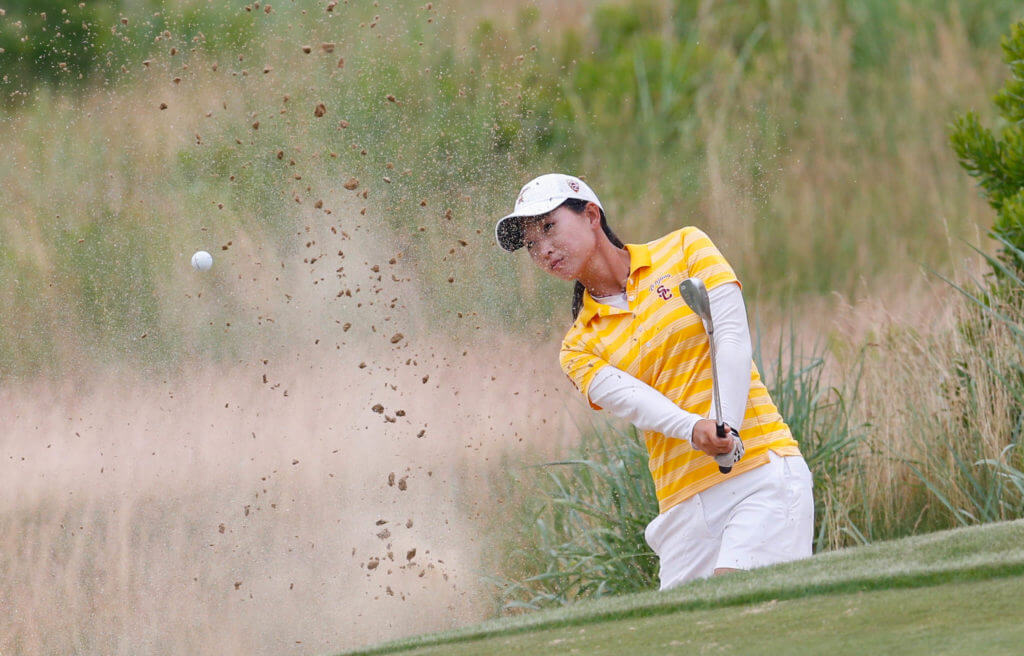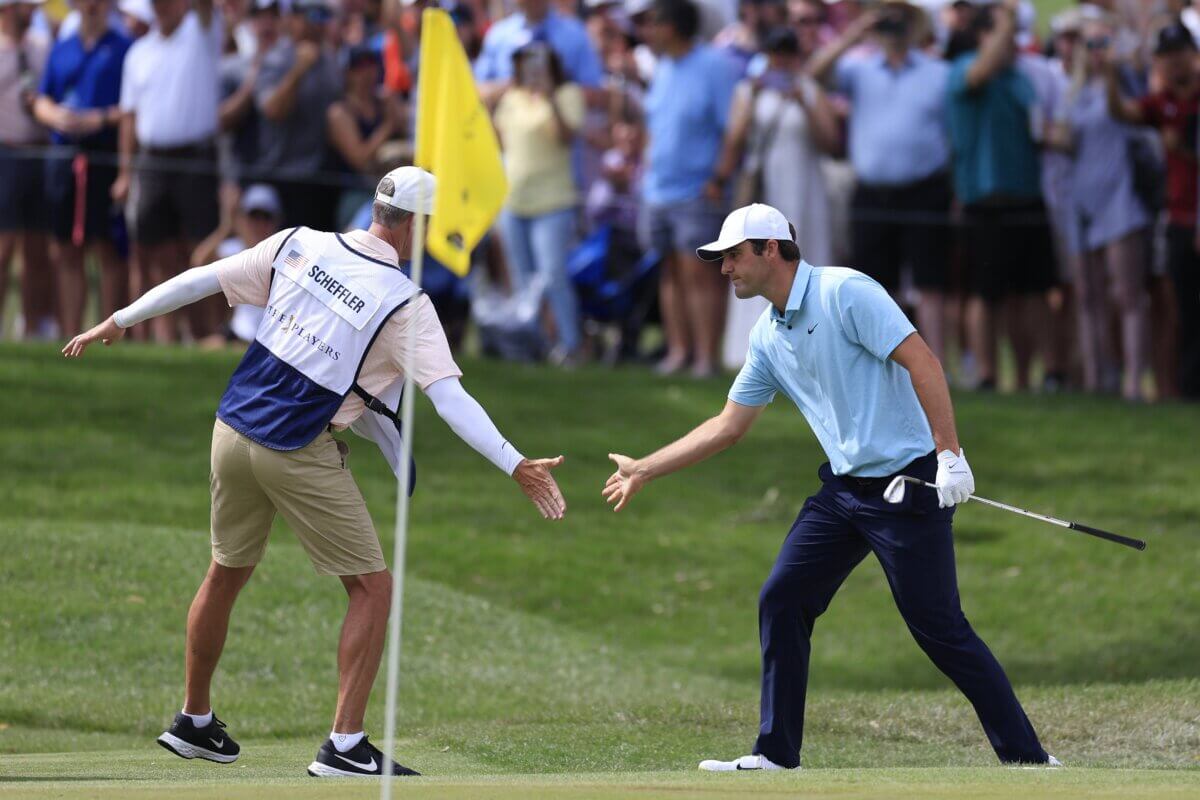Hawk’s Eye: Caddie was right in reporting player’s blatant rules infraction

There is a code of honor in golf, a presumption of honesty that forms the backbone of the game’s competitive integrity. A 150-acre playing field cannot be policed in the same manner referees uphold the law in other sports, and so golfers must take it upon themselves to abide by the rules and notify others of any inadvertent or potential violations.
If the system didn’t work, the game would be a mess.
The system didn’t work last weekend at the LPGA Q-Series, and sadly, women’s professional golf again finds itself in the news for something other than an individual accomplishment or a feel-good story.
Doris Chen was once a rising young star, the 2010 U.S. Girls’ Junior champion who went on to claim the 2014 NCAA women’s individual title while at USC. In 40 starts over the last three years on the Symetra Tour, however, Chen has managed just one top-10 finish and $12,050 in earnings. Only once in the past two seasons has she finished a tournament under par.
JOIN THE DISCUSSION: In what scenario is it OK for a caddie to report a violation on their own player?
Perhaps this is relevant information as to what happened at the inaugural Q-Series, where Chen was 14 over through six of the eight rounds and needed a dramatic reversal of form to earn LPGA membership in 2019. Her drive on the 17th hole of Round 7 (at Pinehurst No. 7, no less) sailed left into some trees and came to rest out of bounds, at which point a homeowner adjacent to the course witnessed a woman moving Chen’s ball back into play.
That woman happened to be Chen’s mother. “[The homeowner] came to me and said she saw someone kick the ball from a good lie to a bad lie,” Chen told GolfChannel.com’s Randall Mell. “She did not mention that the ball was out of bounds.”
This became a moot point when Chen blew through all the stop signs and played her second shot from its “adjusted position.” She did not call for a rules official even though she didn’t understand the ramifications of playing a ball affected by an outside agency. And in a conversation with Mell later that day, Chen did not disclose that she was aware the “spectator” who had acted as that outside agency was actually her mom.
So there you have it. Doris Chen was disqualified, and her once promising career has never been in worse shape than it is now.
To me, that’s where the story merely begins.
Alex Valer, Chen’s caddie, had urged her on several occasions to call for a rules official. Even after his player had struck the fateful second shot, Valer had the presence of mind to continue imploring Chen, perhaps aware that the situation would become all but irreversible once she hit her tee shot at the 18th.
There were different levels of damage involved here. Doris Chen opted for the worst-case scenario, at best out of her own ignorance and denial, at worst because of the egregious behavior of her mother and the blinders she chose to wear upon learning of this parental indiscretion.
Chen also asked Valer to keep quiet about the details of the incident, adding another dent to her credibility. Instead, Valer told LPGA officials everything he’d seen and heard, and because his version was so different from Chen’s, it obviously played a role in her disqualification.
“Doris did the wrong thing,” Valer told Mell. “As a caddie, I know these players and how hard they work. I’ve never been in a position like this before, and I’m just trying to do what’s right.”
At this point, I wonder if Valer’s colleagues — whether they’re the most experienced caddies on the PGA Tour or scrapping for work in the minor leagues — believe he did the right thing.
Did he violate the unwritten terms of a player-caddie relationship by offering full disclosure, which subsequently sealed Chen’s fate?
Should he have kept his mouth shut and remained loyal to his embattled employer, perhaps even questioning the validity of the homeowner in attempting to salvage Chen’s ultra-slim chances of qualifying?
You tell me.
Mell has been one of the best in my business for a long time. We were fortunate to get him for a few minutes on the latest “Hawk & Rude” podcast Tuesday night, and throughout our discussion, he wondered many of the same things.
“This was excruciating for Alex,” Mell said. “I would love to hear three of four of the game’s best caddies talking about this. There’s a code out there with those guys — you’re loyal to your player. Alex didn’t want to be talking to reporters and airing it publicly, but he’s caddied for other players and he knows there’s so much at stake here. He felt like he needed to say something.”
And so he did. With all due respect to the opinions of the men and woman who carry a bag for the world’s best golfers, I submit my own three-word verdict: hip, hip, hooray. And if I wasn’t so true to the rights and wrongs of my own profession, I might even tweak the spelling of his last name. Call him Alex Valor.
All views expressed in this column are those of John Hawkins and do not necessarily reflect those of the Caddie Network.







Totally agree that he did the right thing. I have been involved in one situation that is somewhat similar:
My player hit a drive that plugged into the side of a hill, in the fairway. The player and his playing competitor scoring him agreed it was an embedded ball and he took free relief.
His dropped rolled away from the hole, down the hill a bit. Not a lot but enough that he thought he had to re-drop.
I thought the drop was a live ball. Player picks it up to drop again. I explain my view to my player.
He immediately marks where the ball came to rest, calls over his playing competitor and asks the scorer to call a rules official.
Turns out it had rolled just far enough (using a sand wedge as the club length) to have to be re-dropped.
So no harm no foul.
His integrity in that moment is what all caddies want in their tour player – whatever the level (minor leagues or the PGA TOUR/LPGA). He protected his reputation, my reputation, and most importantly, he protected the field while knowing his action might result in added penalty strokes for himself.